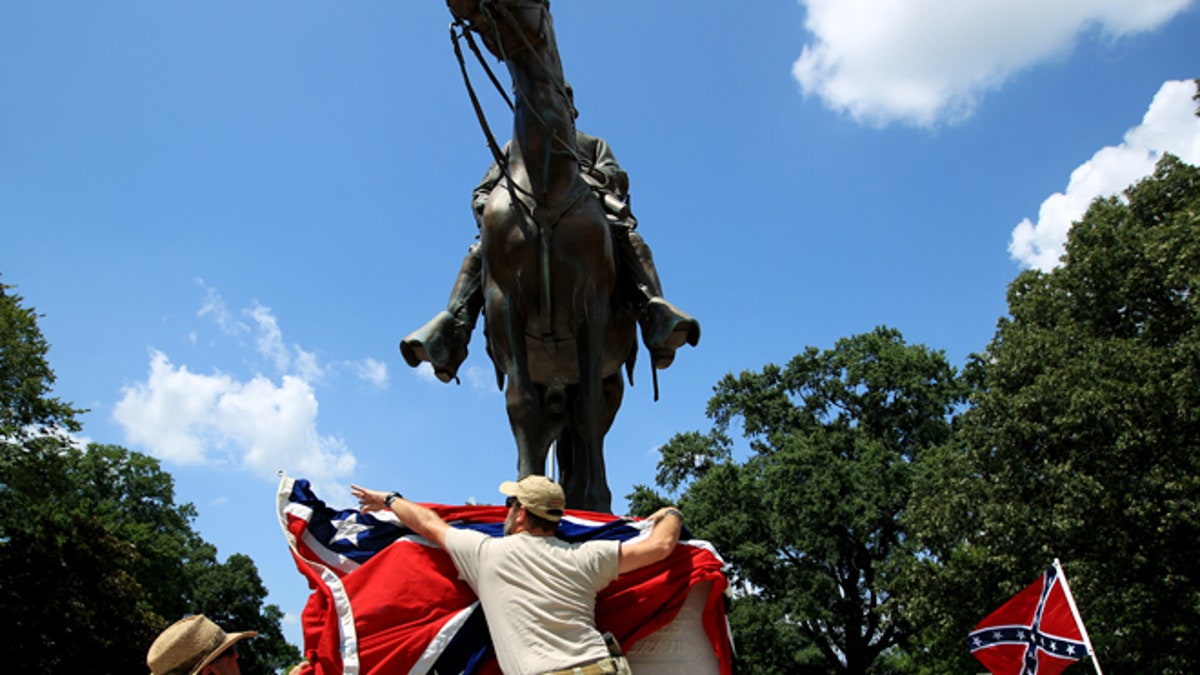
Mike Goza, left, helps Mike Junor drape a Confederate flag over the base of the statue and tomb of Nathan Bedford Forrest, rebel general, slave trader and early Ku Klux Klan member, during a celebration of Forrest's 194th birthday at Health Sciences Park in Memphis, Tenn. (Mike Brown/The Commercial Appeal via AP)
Tennessee state officials said Monday they would not allow the planting of trees to block a 25-foot fiberglass statue of a man who was once a rebel general, slave trader and early Ku Klux Klan member, despite the urging from a city council.
The statue of Nathan Bedford Forrest sits on private land. Nashville's Metro Council passed a resolution requesting that the state's department of transportation plant vegetation to block the view from Interstate 65, The Tennessean reported.
But the department denied the request because it said it does not plant vegetation to block private land.
The transportation commissioner John Schroer denied the request.
In a response to the council, Schroer wrote, "TDOT does not plant foliage on its right-of-way with the sole intention of blocking items on private property based on what might be offensive to some and not to others."
The fiberglass statue depicts Forrest on horseback, surrounded by Confederate flags. When it was erected in 1998, the state cleared vegetation to make it visible from the interstate. The Tennessean reports that the statue was designed by one of the attorneys hired by James Earl Ray, who assassinated Martin Luther King Jr. in 1968.
On Sunday, hundreds of Forrest supporters rallied to show support for the statue.
WNEM.com reported that Ron Sydor, an African-American historian, was the keynote speaker at the event. Sydor reportedly said Forrest changed his ways years after he led the Ku Klux Klan.
"There's a lot of history that has been lost, and it's important that a true history is taught," he said.
Megan Barry, a councilwoman and mayoral candidate in Nashville, has been pushing the effort to block the statue.
"I am optimistic that we may be able to see action taken on this issue. I will happily work with the governor to raise the private funds necessary to make this happen in a way that does not detract from other road projects."
The Associated Press contributed to this report.

